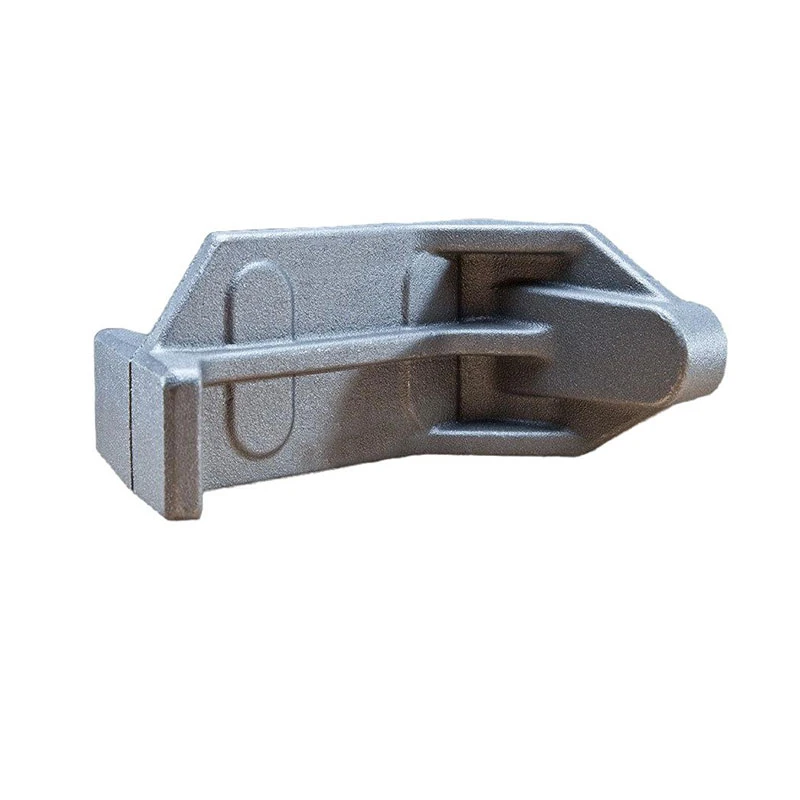precision aluminum casting
Precision Aluminum Casting An Overview
Precision aluminum casting is a sophisticated manufacturing process utilized to create components with high dimensional accuracy and excellent surface finish. This technique has been widely adopted across various industries, including aerospace, automotive, electronics, and consumer goods, due to its ability to produce intricate parts with tight tolerances. This article delves into the principles, advantages, applications, and future trends of precision aluminum casting.
The Principles of Precision Aluminum Casting
The process of precision aluminum casting involves several stages, beginning with the design of the part and ending with its finishing touches. The initial step is to create a detailed 3D model of the component using advanced computer-aided design (CAD) software. This model serves as the foundation for creating a mold.
Mold-making can be accomplished through various techniques, with sand casting, investment casting, and die casting being the most common. Investment casting, also known as lost-wax casting, is favored for its ability to produce complex geometries and superior surface quality. In this method, a wax pattern is coated with a ceramic shell. Once the shell hardens, the wax is melted away, leaving a cavity into which molten aluminum is poured. Die casting, on the other hand, uses high pressure to inject aluminum into a reusable mold, making it ideal for high-volume production.
After the aluminum has solidified, the cast part is removed from the mold, and any additional finishing processes such as machining, polishing, or coating may be performed. This versatile approach enables manufacturers to achieve the desired specifications for various applications.
Advantages of Precision Aluminum Casting
One of the primary advantages of precision aluminum casting is its ability to produce complex parts with tight tolerances, often as close as ±0.1 mm. This level of accuracy is crucial in industries such as aerospace and automotive, where components must meet stringent performance and safety standards.
Additionally, aluminum casting is known for its lightweight properties. Aluminum is significantly lighter than steel and other metals, which helps reduce the overall weight of finished products, resulting in increased fuel efficiency and performance in applications such as vehicles and aircraft. Furthermore, aluminum possesses excellent corrosion resistance, making it an ideal choice for parts subjected to harsh environmental conditions.
Another benefit of precision aluminum casting is its efficiency in terms of material usage. The casting process generates minimal waste, and any scrap metal can often be melted down and reused. This not only contributes to sustainability but also helps lower production costs.
precision aluminum casting

Applications of Precision Aluminum Casting
Due to its numerous advantages, precision aluminum casting finds applications across various industries. In the aerospace sector, it is used to manufacture components such as engine housings, brackets, and structural elements. These components must be both lightweight and strong to withstand the rigors of flight.
In the automotive industry, precision aluminum castings are commonly used for engine blocks, transmission cases, and suspension components. The lightweight nature of aluminum helps improve fuel efficiency while providing the necessary strength and durability.
Electronics manufacturers also benefit from this casting process, producing intricate parts for devices like smartphones, laptops, and appliances. The ability to create complex shapes allows for innovative designs that enhance product performance and aesthetics.
Furthermore, consumer goods manufacturers leverage precision aluminum casting for items such as cookware, decorative fixtures, and sporting equipment, capitalizing on the metal's appealing appearance and excellent properties.
Future Trends in Precision Aluminum Casting
Looking ahead, the future of precision aluminum casting appears promising. As industries continue to emphasize sustainability and efficiency, advancements in casting technologies, such as 3D printing and automated casting systems, are likely to emerge. These innovations will enable manufacturers to reduce lead times, improve accuracy, and minimize waste even further.
Moreover, the growing demand for lightweight materials in electric vehicles (EVs) presents significant opportunities for aluminum casting. As the automotive industry shifts towards sustainability, precision aluminum castings will play a crucial role in the production of lightweight components that enhance EV performance.
In conclusion, precision aluminum casting is a vital manufacturing process that offers numerous advantages, making it indispensable across various industries. Its ability to produce complex, lightweight, and durable parts positions it favorably in the ever-evolving landscape of modern manufacturing. As technology advances and industries evolve, this technique will undoubtedly continue to thrive and innovate.
-
OEM Sand Cast Pump Valve Fittings - Baoding Hairun | Precision Engineering, CustomizableNewsJul.30,2025
-
OEM Sand Cast Pump Valve Fittings - Baoding Hairun Machinery And Equipment Trading Co., Ltd.NewsJul.30,2025
-
OEM Sand Cast Pump Valve Fittings - Baoding Hairun Machinery And Equipment Trading Co., Ltd.NewsJul.30,2025
-
OEM Sand Cast Pump Valve Fittings - Baoding Hairun Machinery|Precision Engineering&Fluid ControlNewsJul.30,2025
-
OEM Sand Cast Pump Valve Fittings - Baoding Hairun Machinery And Equipment Trading Co., Ltd.NewsJul.30,2025
-
OEM Sand Cast Pump Valve Fittings-Baoding Hairun Machinery And Equipment Trading Co., Ltd.NewsJul.30,2025















